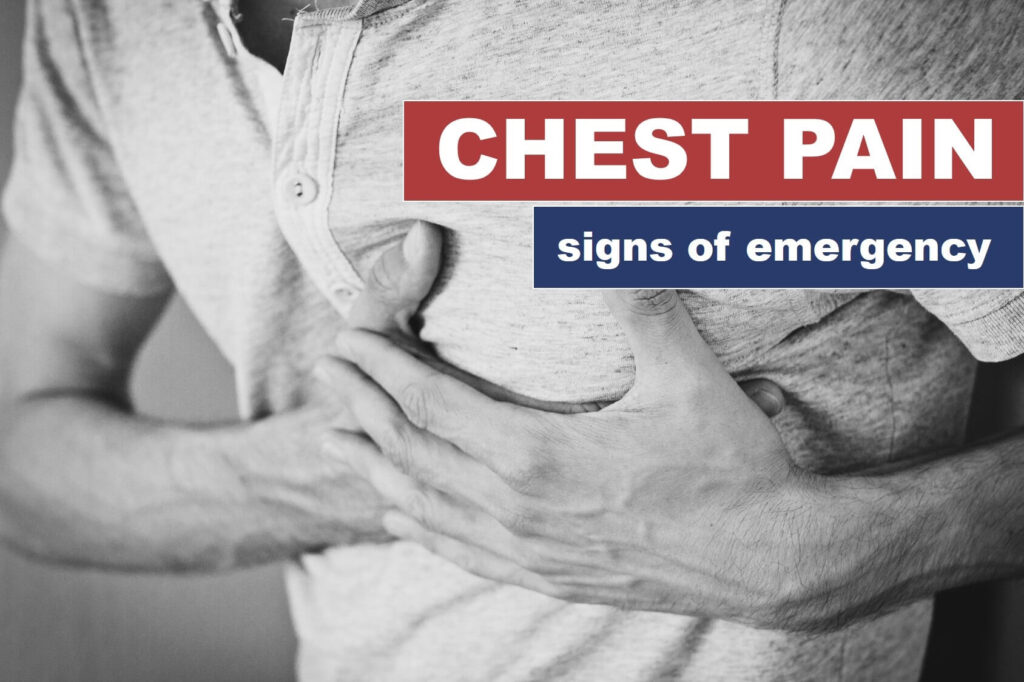Chest Pain: Causes and Signs of Emergency
Chest pain of any kind can understandably be frightening. While some episodes of chest pain may be harmless, other times, chest pain may indicate a serious problem that requires almost immediate medical attention.
That’s why it’s important to be able to recognize the signs of an emergency. Never ignore chest pain, even if it seems insignificant. You should always discuss it with your doctor.
Common causes of chest pain
There are some of the common conditions that cause chest pain ranging from harmless to life-threatening. Some may be due to heart conditions and others may be caused by issues with your lungs or digestive system.
Some of the most common causes of chest pain include:
- heartburn
- GERD
- cardiac conditions
- stress and anxiety
- mitral valve prolapses (MVP)
- angina
- lung disease
- peptic ulcer
- blood clot
- heart attack
Chest pain could represent a dangerous condition, if you have any of the following risk factors:
- age is 40 or over
- nicotine use
- obesity
- diabetes
- hypertension (high blood pressure)
- high cholesterol levels
- family history of heart disease
Is my chest pain dangerous?
Not all types of chest pain are linked with a dangerous problem though certain conditions are definitely serious. And may need to go to cardiac emergency hospital immediately.
Further, severity of the chest pain doesn’t always indicate a severe disease underlying. For example, chest pain associated with heartburn might feel severe that a person may think he/she is having a cardiac problem.
Thus, the cause of chest pain is typically difficult to self-diagnose, one should always visit the nearby critical care hospital, if you are experiencing unexplained, severe and prolonged chest pain.
Symptoms – when you should visit emergency hospital for chest pain
If you are experiencing chest pain that is accompanied by any of the following symptoms, it is critical to undergo immediate diagnosis and treatment:
- difficulty breathing
- nausea or vomiting
- dizziness
- tightness or squeezing sensation in your chest
- pain radiating to the arms, back or jaw
- abnormally high or low heart rate
- heart beating rapidly even at rest
- sweating
- confusion
- loss of consciousness
Is my chest pain indicating a heart attack?
Chest pain is definitely the most common symptoms of a heart attack. But to the surprise some men and women may have a heart attack without a chest pain symptom. It’s important to be aware of the signs and symptoms of a heart attack.
Common symptoms of a heart attack include:
- Chest pain
- Shortness of breath or difficulty breathing
- Pain that radiates to the arms, back, or jaw
- Dizziness
- Sweating or cold/clammy feeling
- Nausea
Chest pain shouldn’t be ignored. Visit your nearby emergency hospital without any delay.
When it comes to chest pain, every second can count. Don’t leave your health, safety, and comfort to chance. If you are having chest pain, contact emergency hospital immediately.
Looking for emergency hospital in Ahmedabad? Contact Phoenix Hospital.
Source/s:
Banner: www.pexels.com [Free to use under Creative Commons Zero (CC0) license]



